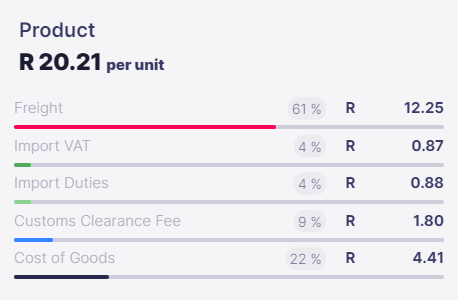![supplier-management-(1)-[Recovered] supplier-management-(1)-[Recovered]](https://airpool.co.za/wp-content/uploads/elementor/thumbs/supplier-management-1-Recovered-3-pv55co5ielgy01kl67r2mvafqg1xozdcgusijslc3s.jpg)

Shipping your goods from different suppliers in China is a costly time- and energy-suck. Consolidation is a cost-effective way of shipping from different suppliers in China.
If you’ve found your niche as a small eCommerce company, that’s great news for your shipping costs! As long as you’re only shipping from one supplier in China, that is. Shipping multiple goods from multiple suppliers means multiple base shipping fees, and that will get costly – fast.
If you can’t keep your shipping costs down, it becomes harder to keep your selling prices competitive. In the ambitious environment of eCommerce, that can spell disaster for your small business.
Fortunately, there are ways of shipping goods from multiple suppliers in China that will not only manage your shipping costs but lower them. Our article guides you through your options when it comes to shipping from different suppliers in China.
Consolidation: the solution to shipping from different suppliers in China
One of the best ways to keep your business up to date with customer preferences is to offer a variety of goods in your eCommerce store. That means that you’ll have to stock several different product categories. If you’re getting all of those categories from one supplier, then you may be able to liaise with them to ship all your products in one go.
But what happens when you’re having to order from different Chinese suppliers in different provinces? How do you get all of those products from China to South Africa? You could ship them individually, but then your shipping costs are likely going to stack up faster than you can sell your stock.
Furthermore, you’re going to have to hire a personal assistant just to keep up with a million different tracking numbers and delivery dates. And that’s going to have a knock-on effect on your business plans. How are you supposed to predict when you’ll restock on a sold-out product, or budget your shipment costs when new ones pop up all the time?
You don’t have to if you consolidate your goods. Basically, consolidation is the combination of multiple orders from different suppliers into one shipment with one tracking number and one delivery date. Consolidation allows your orders to be delivered together, but still in their original packaging.
Sounds great! How do I consolidate my goods?
To consolidate your goods, you’re going to have to liaise with another party. Seeing as your goods are coming from China, you’re going to have to coordinate with an international agent of some kind to get your goods together. You have a few options when it comes to international coordination.
1. You could coordinate with your supplier
A purchasing agent will oversee quality control and consolidation for you. However, they can be pretty pricey. This is also a tricky one because you have to be able to trust your purchasing agent implicitly. That can be difficult when you’re conducting a relationship totally remotely.
When you partner with Airpool, your goods will be consolidated at our warehouse in Yiwu, China before they’re sent as one package to your end destination in SA. That means that you can order from as many different suppliers as you want at a cost-effective rate with a company that wants to help you grow your small to medium business, and can tell you how to do it. Even if you don’t land up using our services, we can point you to the resources that you need!
When you know exactly when all of your goods are arriving, it becomes a whole lot easier to make business decisions. You’ll be able to plan your marketing campaigns effectively, manage customer expectations fairly, and budget your overhead costs accurately.
Well, get your unicorn snacks out. You’ve found one! (It’s us. We’re the unicorn.)
Landed cost is the sum of all expenses associated with importing your goods from China to South Africa. This includes the cost of the goods paid to your supplier, the shipping costs, clearance costs and the import taxes & duties.
It is represented on a per unit cost and helps you with:
Note: This is not what you are paying to Airpool but rather what you are paying to all the suppliers and relevant parties: Airpool, the Manufacturer of the goods and the Import Taxes (VAT & Duties)
